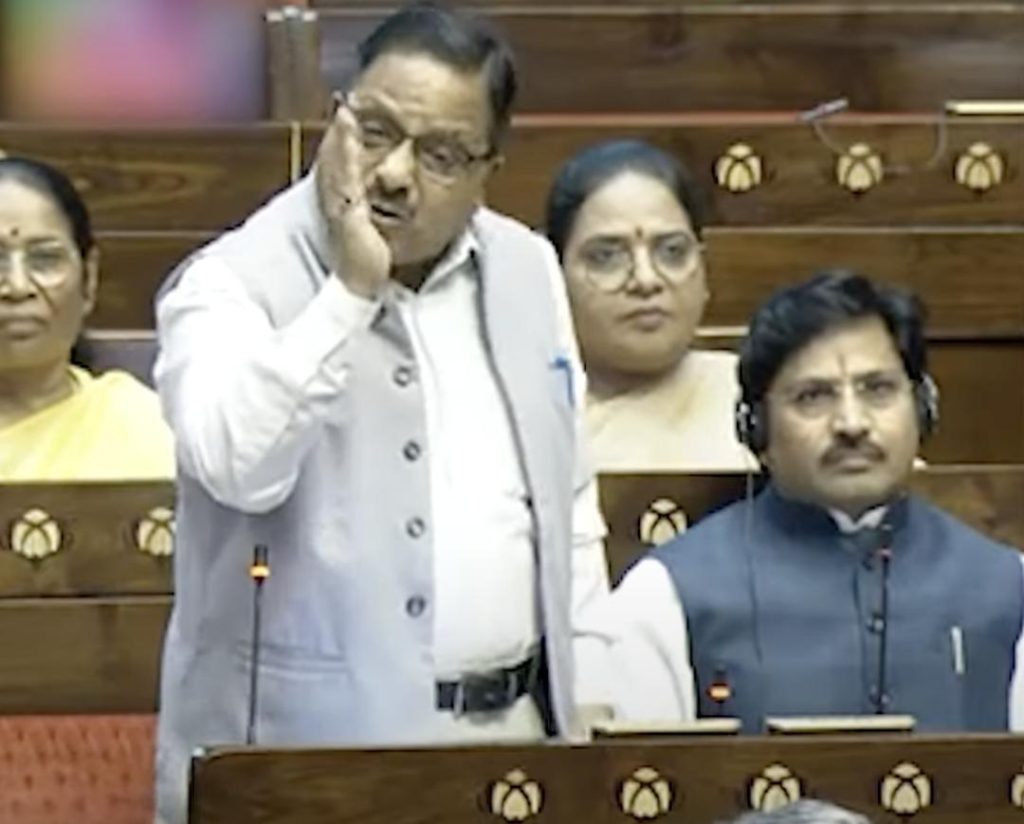
Should I Read Quran and Tell You What’s Written in It: BJP MP Radha Mohan Das on Waqf Bill
In a recent debate on the Waqf Bill in the Indian Parliament, a BJP MP, Radha Mohan Das, sparked a controversy by suggesting that he should read the Quran and share what’s written in it. The comment was made during a discussion on the bill, which aims to reform the management of Waqf properties in India.
Das’s statement was met with strong reactions from opposition parties, who accused him of being ignorant and disrespectful towards the Islamic faith. However, Das’s intention behind his comment was to highlight the lack of transparency and accountability in the management of Waqf properties.
For those who may not be aware, Waqf properties are a type of endowment in Islamic law, where a person donates their property to a religious organization or individual for the purpose of fulfilling a charitable or religious obligation. In India, the Waqf Board is responsible for managing these properties, which include mosques, madrasas, and other religious institutions.
Das’s comment was made in response to the Waqf Board’s claim that it has many properties under its management, but lacks records of these properties. Das questioned the Board’s ability to manage these properties without keeping accurate records, and suggested that he should read the Quran to understand the Islamic perspective on the issue.
In the Quran, Das pointed out that even if one rupee is given to anyone, there should be a written record. He used this verse to highlight the importance of transparency and accountability in the management of Waqf properties. Das argued that the Waqf Board’s failure to maintain records of its properties is a violation of this principle, and that it is necessary to ensure that the properties are being used for their intended purpose.
Das’s comment was not without controversy, with many opposition parties and Muslim organizations criticizing his statement. They argued that Das was trying to undermine the Islamic faith and that his comment was an attempt to create communal tension.
However, Das maintained that his intention was not to disrespect the Quran or the Islamic faith, but rather to highlight the need for transparency and accountability in the management of Waqf properties. He argued that the Waqf Board’s lack of records is not only a violation of Islamic principles but also a recipe for corruption and mismanagement.
The controversy surrounding Das’s comment has highlighted the need for a more nuanced understanding of Islamic law and its principles. Many Muslims argue that the Quran and Hadith (the sayings and actions of the Prophet Muhammad) provide clear guidance on the management of Waqf properties, and that the Waqf Board’s failure to follow these principles is a cause for concern.
In fact, the Quran provides detailed guidance on the management of Waqf properties, including the importance of transparency and accountability. For example, the Quran states that “those who manage the Waqf properties are responsible for their management and should be transparent in their dealings” (Quran 9:34).
Similarly, the Hadith provides guidance on the management of Waqf properties, including the importance of keeping accurate records and accounting for the income and expenditure of these properties. For example, the Prophet Muhammad is reported to have said, “The one who manages the Waqf property is responsible for its management, and should be transparent in their dealings” (Bukhari, Volume 3, Book 46, Number 725).
In conclusion, Das’s comment may have sparked controversy, but it has also highlighted the need for a more nuanced understanding of Islamic law and its principles. The Quran and Hadith provide clear guidance on the management of Waqf properties, and it is essential that the Waqf Board and other organizations responsible for managing these properties follow these principles.
As Das pointed out, the lack of records of Waqf properties is not only a violation of Islamic principles but also a recipe for corruption and mismanagement. Therefore, it is essential that the Waqf Board and other organizations responsible for managing these properties prioritize transparency and accountability in their dealings.
News Source:






